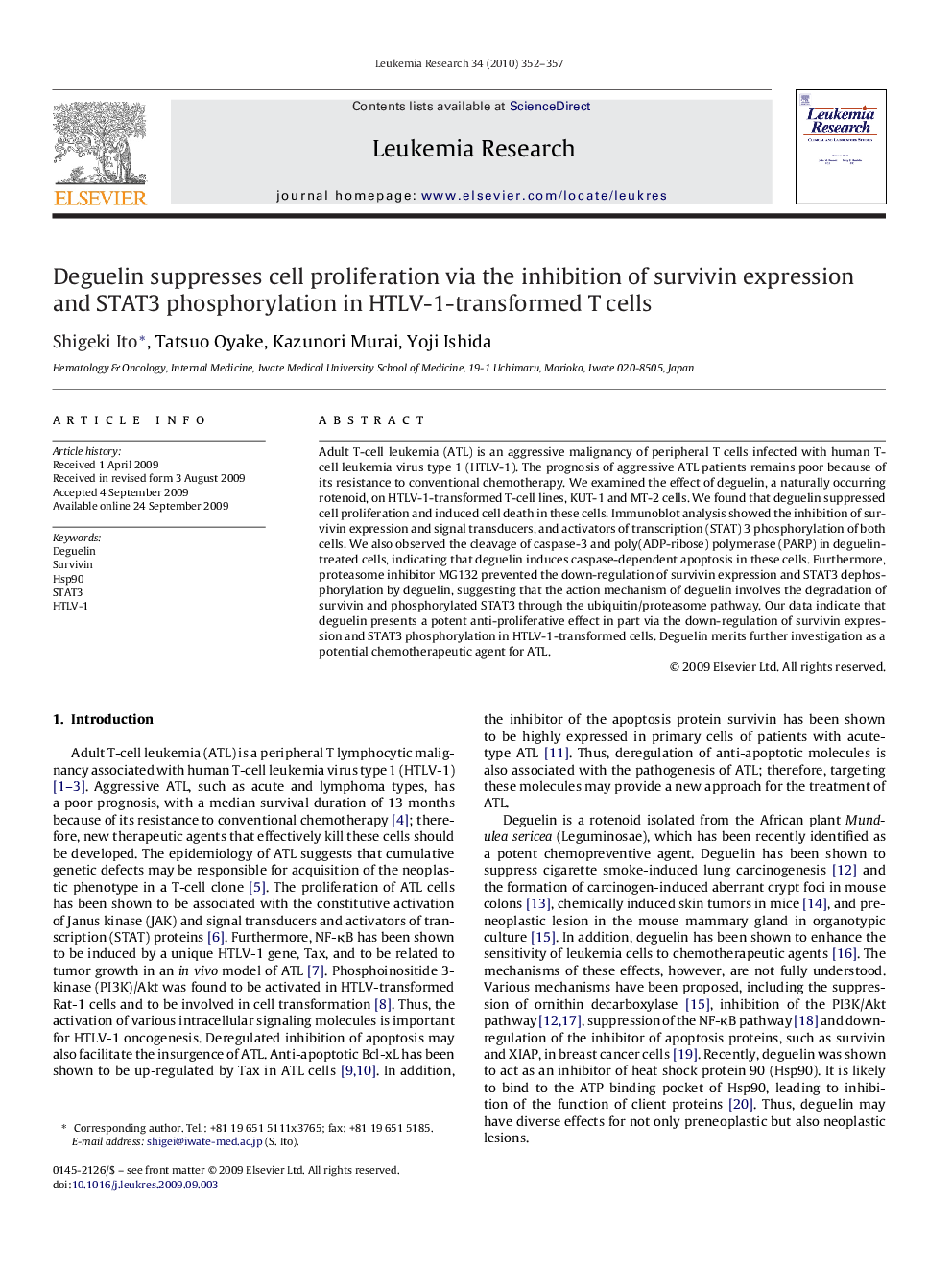| Article ID | Journal | Published Year | Pages | File Type |
|---|---|---|---|---|
| 2138741 | Leukemia Research | 2010 | 6 Pages |
Adult T-cell leukemia (ATL) is an aggressive malignancy of peripheral T cells infected with human T-cell leukemia virus type 1 (HTLV-1). The prognosis of aggressive ATL patients remains poor because of its resistance to conventional chemotherapy. We examined the effect of deguelin, a naturally occurring rotenoid, on HTLV-1-transformed T-cell lines, KUT-1 and MT-2 cells. We found that deguelin suppressed cell proliferation and induced cell death in these cells. Immunoblot analysis showed the inhibition of survivin expression and signal transducers, and activators of transcription (STAT) 3 phosphorylation of both cells. We also observed the cleavage of caspase-3 and poly(ADP-ribose) polymerase (PARP) in deguelin-treated cells, indicating that deguelin induces caspase-dependent apoptosis in these cells. Furthermore, proteasome inhibitor MG132 prevented the down-regulation of survivin expression and STAT3 dephosphorylation by deguelin, suggesting that the action mechanism of deguelin involves the degradation of survivin and phosphorylated STAT3 through the ubiquitin/proteasome pathway. Our data indicate that deguelin presents a potent anti-proliferative effect in part via the down-regulation of survivin expression and STAT3 phosphorylation in HTLV-1-transformed cells. Deguelin merits further investigation as a potential chemotherapeutic agent for ATL.
